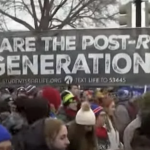Elisa Parhad
- Nick Vivion, 39, bought an RV in February when he couldn’t afford an overpriced house, he said.
- He said that becoming a nomad living in an RV was one of the only ways to be middle class in the US.
- While it’s more affordable, there are trade-offs like unexpected expenses — and loneliness, he said.
What does a millennial do when they can’t afford a house? Buy an RV, of course.
That’s what Nick Vivion, 39, did in February. The crypto/blockchain PR director hoped to buy the $350,000 house in Palm Springs, California, that he’d been renting for the past three years. But the landlord wanted $100,000 more for it than he had the year before, eventually listing it for $600,000.
“It was such an enormous jump, and it just started to seem impractical in a lot of ways to buy a house in a lot of places,” Vivion told Insider. “That madness made me realize that rents were also going to spike: boomers downsizing, renters returning, and professionals working remote.”
So he decided to try out the RV life in hopes of reducing his expenses and having more flexibility. He and his boyfriend purchased a fifth-wheel RV that attaches to the back of a truck for about $80,000 with cash and a crypto loan; Vivion called himself “kind of a crypto guy.” They also had to buy a truck, which cost nearly as much as the RV, at $65,000, he said.
He called the RV his “condo on wheels” because it’s 420 square feet and has a living room that doubles as an office, a kitchen and dining area, and a bedroom. “It feels like a house, just a small apartment,” he said. “It’s actually bigger than my first apartment in New York.”
The new middle class
As Parag Khanna, a globalization expert, wrote in his new book, “Move: The Forces Uprooting Us,” trailer homes like RVs have become “the ultimate symbol of the new American mobility.” He argues that this physical mobility opens up paths to economic and social mobility.
Khanna told Insider that this type of small home had become bigger than ever during the pandemic, enabling owners to live a more nomadic lifestyle and presenting a more affordable solution to aspiring homeowners. The youth, he said, are leading the way.
“Their instinct is: I’m not going to be stuck in place. I’m not going to take on more debt. I don’t need to own that home,” Khanna said.
That was the case for Vivion, who said he believes that being nomadic and living in an RV is one of the only ways to be middle class in America today. “It’s the last place you can live that’s relatively affordable and where you get decent amenities for your money,” he said.
He added that many of the RVers he and his partner had met are people working in trades, such as traveling nurses, teachers, or AC repairmen, who can’t afford to buy homes but can afford to own RVs. “It’s an increasing reality as the middle class gets further compressed financially and wealth concentrates at the top,” he said.
If you’re not overpaying for a house, he said, you can save more for retirement and have more financial control.
A lifestyle of trade-offs
In the past 10 months, Vivion has made his way through Southern California, Texas, Chicago, and upstate New York. He’s now in Miami.
He said the best part of a mobile lifestyle is the ability to be in nature and the freedom it affords. “I like the fact that you can just bring all your life with you,” he said.
But RV life isn’t all that different from owning a house sometimes. Just like any homeowner, Vivion has faced unexpected expenses — like paying $7,000 to repair an engine issue, plus additional costs for a hotel while the engine was being fixed.
“Some of those costs might have been had in normal life, but you’re also towing a big thing, lots of stuff breaks down,” he said. “Because there’s so much moving stuff, it’s going to cost money.”
There are also logistical headaches, like being unable to park an RV anywhere you want, which he said could add a layer of stress if you were stranded on the interstate and trying to figure out how to get the truck fixed and where to stay in the meantime.
“You have to adapt and be very resilient in that way,” he said. “The inconsistencies of it can be draining.”
He added that RV life could also be lonely and that he craved a recharge in a city sometimes. “You’re kind of cutting out a lot of what people want,” he said. “They want to live in a city, with the culture, the kinetic energy, the feeling of people and diversity and potential. But now we have careers everywhere, so it’s also like that big push to be in a city is gone.”
Vivion and his partner plan to continue living in the RV for two years. He said that while part of them desired to stay in one place, they’d learned so much about life on the road that they didn’t want to “just walk away.”
“I don’t know how I’m going to go back to paying someone else that money,” he said. “There is this inherent freedom to it that is very nice and comforting – knowing that no matter what I have a place to stay, as long as I can find a place to put it, there’s a freedom there.”
Powered by WPeMatico






